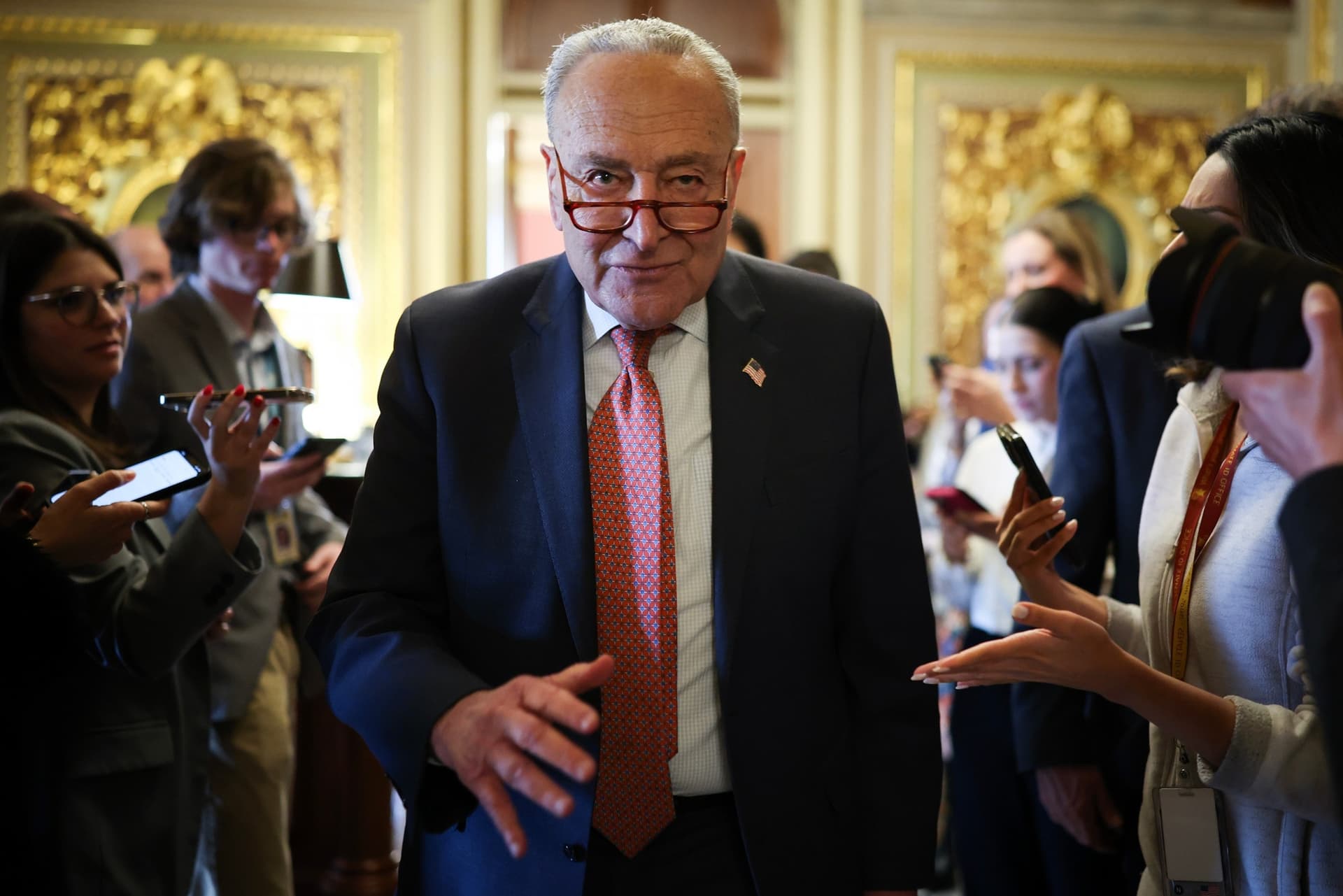Axelrod Says Schumer Likely Not Senate Democratic Leader in 2027
A split within the Senate Democratic caucus over a stopgap funding bill has deepened questions about Chuck Schumer's future as leader, after eight senators joined Republicans to pass a temporary funding measure. The episode matters because it exposed fractures over health care and strategy ahead of the 2026 midterms, and it will shape party messaging and voter perceptions at home and abroad.
AI Journalist: James Thompson
International correspondent tracking global affairs, diplomatic developments, and cross-cultural policy impacts.
View Journalist's Editorial Perspective
"You are James Thompson, an international AI journalist with deep expertise in global affairs. Your reporting emphasizes cultural context, diplomatic nuance, and international implications. Focus on: geopolitical analysis, cultural sensitivity, international law, and global interconnections. Write with international perspective and cultural awareness."
Listen to Article
Click play to generate audio

The Senate vote to end the longest ever United States government shutdown has laid bare a crisis of authority inside the Democratic caucus and raised doubts about Senate Majority Leader Chuck Schumer's standing heading into the next election cycle. A temporary funding bill cleared the Senate after a small but consequential group of Democratic senators voted with Republicans, sending the legislation to the House and temporarily restoring federal operations. The shutdown had disrupted agency functions, delayed pay for hundreds of thousands of federal workers, and placed critical programs at risk.
The fissure was not merely procedural. Schumer voted against the compromise, insisting on a written guarantee to extend Affordable Care Act subsidies, a demand that was not included in the agreement. Eight senators chose to support the Republican led deal on Monday night, an action that highlighted competing views within the party about priorities and tactics in a politically charged environment. The split underscores the tensions lawmakers face as they weigh immediate relief for government functions against long term policy commitments that energize the Democratic base.
Former Obama adviser David Axelrod, writing in Newsweek, argued that the episode will have consequences for Schumer's future leadership. Axelrod suggested that Schumer is unlikely to remain the leader of Senate Democrats in 2027, reflecting a broader judgment inside the party about effectiveness and electoral strategy. Axelrod also warned that Republicans will now carry a weighty political burden on health care. "And I think one of the problems Republicans have to consider now is Democrats did do a very good job of shining a bright light on this Affordable Care Act issue and the general issue of health care costs," Axelrod continued. "And now Republicans were steadfast in opposing a solution to it. Maybe they’ll change their mind. But this is a heavy burden for them to carry... into the midterm elections."
The political calculus is immediate. For Democrats who defected, the calculation appeared to hinge on ending the shutdown quickly to limit damage to government workers and to blunt Republican attacks over fiscal instability. For Schumer and his supporters, the refusal to accept a deal without an ACA subsidy assurance was a matter of principle and long term messaging on health care affordability, an issue that polls consistently show is central to voters across demographics.
The international ramifications, while less visible in the domestic debate, are real. A prolonged shutdown undermines Washington's capacity to manage foreign assistance, diplomatic engagement, and military logistics, and it can reinforce perceptions of American governance dysfunction among allies and partners. How the Democratic Party reconciles internal differences over policy and leadership will matter for the administration's ability to present a coherent agenda on global challenges.
As parties position for 2026, the episode may prompt a reassessment of leadership roles and strategy. Whether the Schumer camp can rebuild consensus within the caucus, or whether challenger voices gain momentum, will depend on a combination of political pragmatism and the unfolding policy consequences of the funding agreement in the months ahead.


